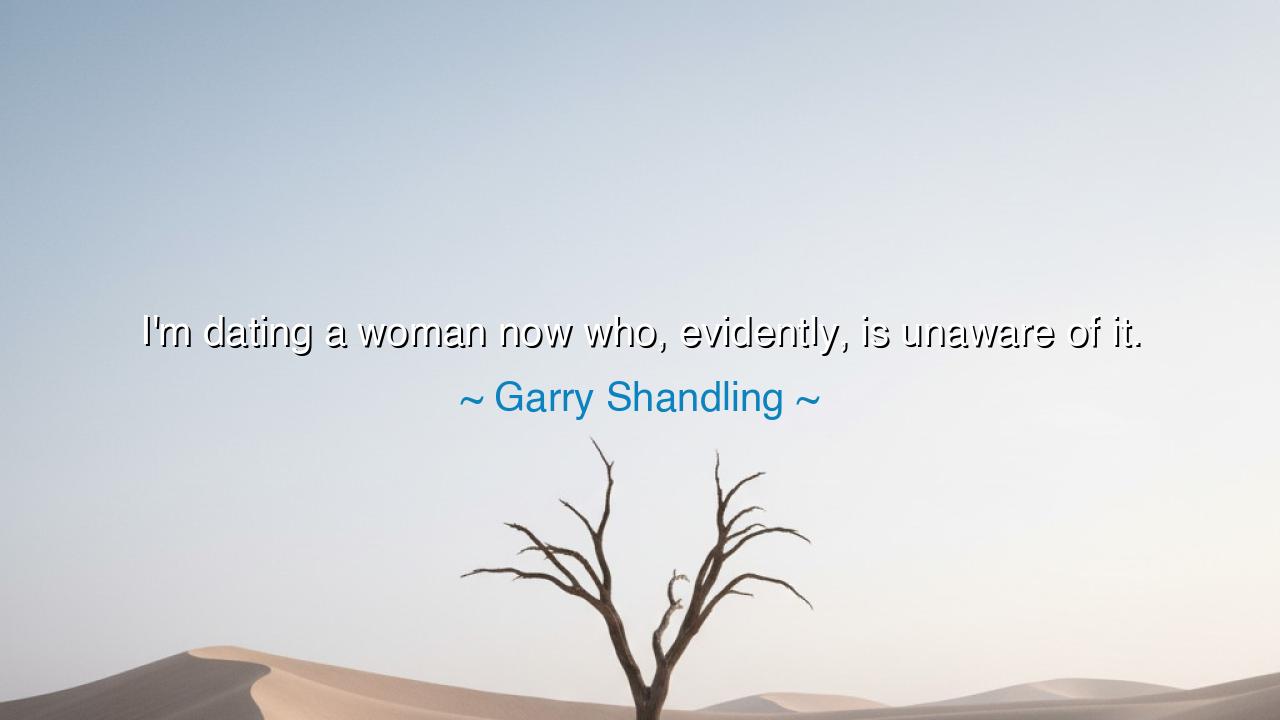
I'm dating a woman now who, evidently, is unaware of it.






The comedian Garry Shandling once spoke with a wry smile, “I’m dating a woman now who, evidently, is unaware of it.” Though born in jest, as laughter often conceals wisdom, this line pierces deeper than it seems. Beneath its humor lies a mirror to the heart’s most ancient folly — the longing for connection where none truly exists, the illusion of love built not upon shared truth but upon solitary hope. It is the tale of affection unreturned, of dreams spun in one soul while the other walks in unknowing peace.
The ancients, too, knew this ache. They spoke of Narcissus, who gazed into the still water and believed he had found a lover, not realizing the beauty he worshiped was his own reflection. So it is with those who love in silence or delusion — they see in another what they most yearn for within themselves. Shandling’s humor reveals this tender irony: the human heart, ever seeking warmth, will sometimes weave a story out of shadows, calling it companionship when in truth it is but longing clothed in imagination.
Yet, let us not mock such yearning. For in its depths lies something noble — the soul’s refusal to grow cold. Even when faced with loneliness, the heart continues to reach, to dream, to believe that love might answer back. In this, there is both folly and faith. The fool suffers; the believer endures. And often, they are the same person — wounded, yet radiant with the hope that tomorrow’s glance might become understanding, that today’s silence might someday soften into affection.
Consider the story of Don Quixote, the knight of La Mancha, who pledged his heart to the fair Dulcinea, a woman who never knew him, whose beauty was more legend than truth. To others, he seemed mad — a dreamer lost in his own tales. Yet in his devotion, absurd though it was, lived something divine. For in believing in a love that did not exist, he revealed humanity’s greatest strength: the ability to see beauty where the world sees none, to keep faith alive even when it has no answer.
Thus, Shandling’s humor is the laughter of recognition. It reminds us that the line between comedy and tragedy is thin, and that much of what we laugh at in others is what we fear in ourselves. To love someone who does not love you back is among the oldest sorrows known to humankind — yet to laugh at it is to reclaim power over it. The joke is not cruelty but healing; it teaches us to face disappointment without bitterness, to transform ache into art, longing into laughter.
From this truth emerges a lesson for all who walk the path of the heart: do not build castles upon clouds, nor weave stories where no soul has joined you. Love, to be real, must be mutual — not imagined, not assumed. Speak your heart, let the truth be known, and if the affection is not returned, walk away with dignity, not despair. For love unreturned is not failure; it is proof that you were capable of giving what the world most needs — warmth, courage, sincerity.
And yet, do not harden your heart. Let humor be your lantern, as it was for Shandling — for laughter purifies pain, turning the sting of rejection into the light of self-awareness. In every failed romance lies a lesson; in every imagined connection, a mirror. The wise do not mourn that their love was unseen; they rejoice that they have learned to see themselves more clearly.
So remember, seeker of love and meaning: when you find yourself “dating someone who is unaware of it,” pause and smile. The gods, too, once played such games of the heart. Let it humble you, not break you. For from unreturned love, you may learn the greatest secret of all — that before any heart can truly be joined with another, it must first befriend its own solitude.






AAdministratorAdministrator
Welcome, honored guests. Please leave a comment, we will respond soon